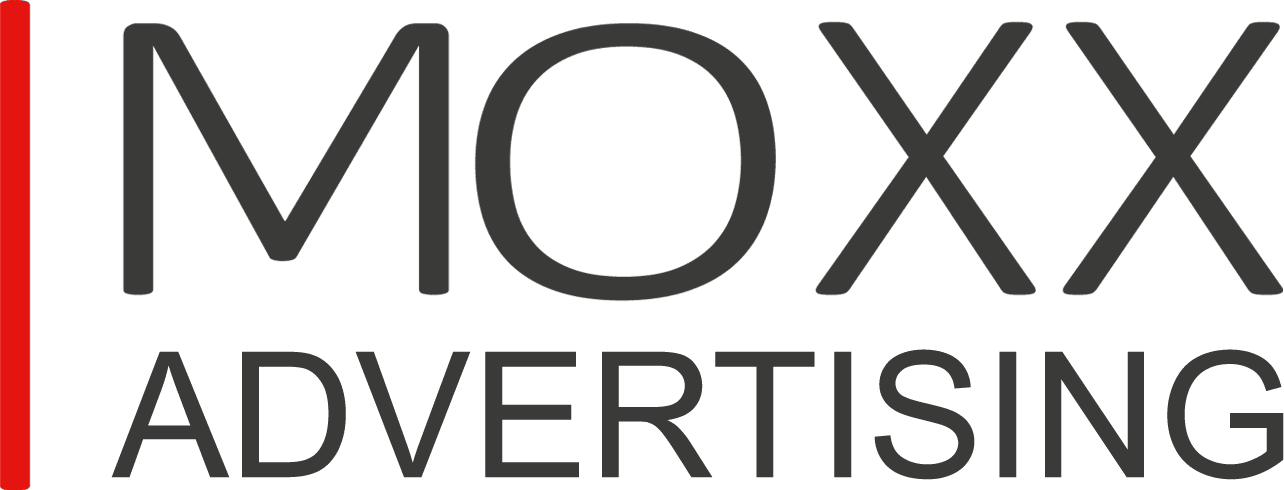Email marketing
Email marketing allows you to multitask – that is, to fulfil several business goals at the same time: promote your brand, launch a campaign for a new product, survey your existing customers, offer them special offers and increase sales. Still considering? Take the step to successful email marketing now!
What is email marketing?
Email marketing is a digital marketing method that utilises electronic mail to establish a connection with the target audience and deliver communication, content, and offers. This method is particularly useful for companies and organisations that aim to communicate with their customers, subscribers, or potential clients by sending emails to their inbox.
Email marketing can encompass (contain) various types of messages, such as:
- Advertising campaigns: Sending emails that offer products, services, or special offers.
- Informative newsletters: Sending regular news bulletins with current information, articles, tips, and other useful materials.
- Support and training: Sending emails that provide instructions, guides, and assistance to customers.
- Confirmations and notifications: Sending confirmation emails for orders, registrations, or other activities.
- Automated sequences: Creating automated campaigns that are sent in response to specific actions taken by recipients, such as welcome emails, reminders, and others.
Email marketing can be an effective tool for increasing sales, improving customer relationships, and building loyalty. It relies on collecting email addresses from interested parties and obtaining consent to receive emails, as well as sending content that is relevant and valuable to the recipients.
Variations (Types) of email marketing
Email marketing offers various methods and types that can be used to achieve different marketing goals. Here are some of the variations of email marketing:
- Promotional emails: These emails are used to promote products, services, or special offers. They contain information about products, services, prices, and how to make a purchase.
- Newsletter emails: Newsletter emails are sent regularly (e.g., weekly or monthly) and include current news, content, articles, tips, and information that is valuable to subscribers. They can be used to strengthen customer relationships and build authority.
- Automated emails: These emails are generated automatically in response to specific events or actions by recipients. Examples include welcome emails after registration, reminders for abandoned shopping carts, post-purchase emails, and more.
- Confirmations and notifications: Confirmation emails are used to inform customers of successfully completed orders, registrations, or other activities. They may also include information about next steps.
- Personal emails: Personal emails are sent from one individual to another and are tailored to individual customers or potential clients. They are used for personalisation and building a closer connection with recipients.
- Sponsored emails: Sponsored emails are sent on behalf of another company or organisation to advertise their products or services. Typically, they involve an agreed-upon commission for the sending company.
- Reactive emails: These emails are sent in response to inquiries, requests, or issues submitted by customers. Reactive emails are used for customer support and issue resolution.
- Surveys and feedback: Survey and feedback emails are used to collect feedback from customers about their preferences, satisfaction, and opinions.
Email marketing provides a variety of opportunities for engaging with the target audience and can be customised to align with a company’s or organisation’s specific marketing objectives.
Why your business needs email marketing in 2023?
Email marketing remains a crucial tool for businesses in 2023, and there are several key reasons for this:
- Revenue generation: Email marketing has a proven track record of generating revenue and delivering a return on investment. It provides access to direct customers and potential clients who have already shown interest in your company or products.
- Personalisation and targeting: Email marketing allows you to personalise messages based on recipients’ preferences, increasing the likelihood of a response and conversion. This leads to better alignment with customer needs.
- Information channel: Emails provide a means to send information, news, and relevant content to your audience. This informational aspect helps customers stay informed and view your company as an authority in the respective field.
- Automation and segmentation: Modern email marketing tools offer automation for campaigns and audience segmentation. This allows businesses to send the right type of messages to the right people at the right time.
- Measurability and analysis: Email marketing enables easy measurement of results and analysis of campaign effectiveness. This analysis provides an opportunity for continuous improvement and optimisation of marketing strategy.
- Cost-effectiveness: Email marketing is typically more cost-effective compared to other forms of marketing such as television or print advertising. It doesn’t require significant investments and offers an excellent cost-to-results ratio.
- Compliance with regulations: In 2018, the European Union introduced the General Data Protection Regulation (GDPR), emphasising the importance of respecting customer data privacy and adhering to electronic marketing rules. Compliance with such regulations is crucial for maintaining a good reputation and trust among customers.
What you can use email marketing for?
Email marketing offers a wide range of applications and purposes in the business environment. Here are some of the main ways you can use email marketing:
- Advertising and sales: Email marketing can be used to promote products, services, and special offers. It contains information about products, services, prices, and how to make purchases. This type of email is sent to increase sales and generate revenue.
- Newsletters: Email can be used to send newsletters with current news, articles, tips, and informative content that’s beneficial to your audience. Newsletters help in strengthening your relationship with customers and building authority.
- Welcome and registration emails: After users register on your website or subscribe to your email list, you can send them a welcome email that greets them and provides useful information about your business or services.
- Automated sequences: Email marketing enables the creation of automated sequences, such as a series of emails sent in response to specific events or actions by recipients, such as abandoned cart reminders, post-purchase emails, and more.
- Customer communication: Emails are a powerful tool for maintaining customer relations. They can be used to respond to inquiries, resolve issues, and provide support.
- Segmentation and personalisation: Email marketing allows you to segment your audience and personalise messages, increasing the response and customer satisfaction.
- Educational messages and training: Email can be used to provide educational messages and training to customers about your business, products, or services.
- Collecting feedback: Emails can be used to gather feedback from customers regarding their experiences with your business and to conduct surveys.
- Notifications and event announcements: Email marketing can be used to send notifications and announcements about upcoming events, conferences, or seminars.
- A/B testing and experiments: Email marketing allows businesses to conduct A/B tests and experiments with different types of messages and strategies to optimise campaign effectiveness.
Email marketing is a versatile tool that can be adapted to various marketing goals and strategies, including increasing sales, improving customer relationships, and strengthening your brand.
Email marketing agency
An email marketing agency is a specialised firm or organisation that provides services in the field of email marketing to its clients. Such agencies have experts who are responsible for developing, executing, and optimising email marketing strategies and campaigns. Here’s what email marketing agencies typically offer:
- Strategic planning: They assist clients in defining their goals and email marketing strategy, helping create a plan to achieve those objectives.
- Email address collection: They aid in gathering email addresses from clients and potential customers while creating and managing email lists.
- Email template design: They create visually appealing email templates that align with the client’s brand and message.
- Content creation: Agencies provide content for email campaigns, including text, graphics, videos, and other media elements.
- Sending and delivery: Agencies use specialised platforms and software to send email campaigns, ensuring that messages are successfully delivered to recipients’ inboxes.
- Segmentation and personalisation: They assist with audience segmentation and message personalisation to enhance campaign effectiveness.
- Automation: Email marketing agencies create automated email sequences and scenarios, triggered in real-time or based on specific actions by clients.
- Testing and optimisation: They conduct A/B tests and analyse results to optimise messages and strategies.
- Analysis and reporting: Providing reports and analyses of email campaign results, including open rates, click-through rates, conversions, and other metrics.
- Regulatory compliance: Ensuring that email campaigns adhere to all applicable regulations and legislation, such as GDPR and the CAN-SPAM Act.
- Training and consultation: Offering training and consultation services to clients, educating them on best practices and strategies in email marketing.
Email marketing agencies are valuable for businesses that want to incorporate email marketing into their marketing strategy but may lack the necessary resources, knowledge, or experience to manage email campaigns independently. They help clients achieve better results and build stronger connections with their audience through effective email marketing.
Email marketing software
Email marketing software is a specialised computer program or online platform that enables businesses to create, send, and manage email campaigns. This type of software typically provides a wide range of tools and features to optimise email marketing strategies. Here are some of the key characteristics and functions of email marketing software:
- Campaign creation: It allows users to create and edit email messages and templates.
- List management: Helps collect and manage email addresses, segment the audience, and maintain up-to-date lists.
- Sending and delivery: Provides the ability to send large volumes of emails and ensures successful delivery to recipients’ inboxes.
- Segmentation and personalisation: Allows users to segment their audience and personalise messages for more targeted outreach.
- Automation: Offers tools to create automated email sequences, such as welcome emails, reminders, and more.
- Testing and optimisation: Enables users to run A/B tests to optimise content and strategy.
- Analysis and reporting: Provides detailed analyses and reports on email campaign results, including open rates, click-through rates, conversions, and other metrics.
- Integration with other platforms: Many email marketing software options offer integration capabilities with other tools and platforms, such as CRM systems, social media, and more.
- Regulatory compliance: Ensures that sent email campaigns comply with regulations and legislation, like GDPR and the CAN-SPAM Act.
- Spam filters and security: Supports email security and helps prevent emails from being classified as spam.
- Cross-Platform compatibility: Ensures compatibility with various devices and platforms, including mobile phones, tablets, and desktop computers.
Popular email marketing software includes MailChimp, Constant Contact, AWeber, GetResponse, Campaign Monitor, and others. The choice of the right email marketing software depends on your business’s needs, budget, as well as the scale and goals of your email marketing efforts.
Email marketing platforms
There are numerous platforms and software solutions for email marketing that can be used by businesses and marketing professionals to create, send, and manage email campaigns. Here are some of the most popular email marketing platforms:
- MailChimp: This is one of the most well-known and popular email marketing platforms. MailChimp provides a wide range of tools for creating emails, audience segmentation, automation, and result analysis.
- Constant Contact: Constant Contact offers tools for creating and sending emails, collecting email addresses, audience segmentation, and event and survey management.
- AWeber: AWeber is a platform that provides tools for automating email campaigns, creating landing pages, and result analysis.
- GetResponse: This platform offers marketing automation tools, visual email creation, landing page creation, and result analysis.
- Campaign Monitor: Campaign Monitor provides tools for creating and sending stylish emails, audience segmentation, and report generation.
- HubSpot: HubSpot offers an integrated marketing platform that includes email marketing along with other marketing tools such as blogs, social networks, and content management.
- SendinBlue: This platform offers email marketing, SMS marketing, and other marketing tools, along with result analysis.
- ConvertKit: ConvertKit focuses on marketing for bloggers, authors, and creators, providing tools for creating emails and campaign automation.
- Benchmark Email: This platform offers tools for creating emails with an integrated HTML editor, audience segmentation, and result analysis.
- MailerLite: MailerLite provides tools for creating stylish emails, audience segmentation, and email campaign sending.
Choosing the right email marketing platform depends on your specific needs, budget, and the scale of your marketing efforts. It’s essential to select a platform that aligns with the specific goals of your business and provides tools for effective email campaign management.
Marketing strategy
A marketing strategy is a long-term plan that outlines how your company or organisation will achieve its marketing goals and position itself in the market. It involves a series of marketing activities and methods that need to be executed to increase visibility, brand presence, customer base, and revenue for your business. Here are some key steps and components involved in creating a marketing strategy:
- Market research and analysis: To understand your target audience and competitors, you need to conduct a thorough market analysis. This analysis includes researching customer needs and preferences, assessing the competition, and identifying opportunities and threats.
- Goal setting and target audiences: After conducting an analysis, define your marketing goals. These goals should be Specific, Measurable, Achievable, Relevant, and Time-bound (SMART goals). Also, define your target audience – who your ideal customers are and what their demographics, behaviours, and interests are.
- Brand creation and positioning: Develop and establish your brand to align with your business’s values and unique characteristics. Determine how you’ll position yourself in the market and what your Unique Selling Proposition (USP) will be.
- Selection of marketing channels and tools: Choose the appropriate marketing channels and tools to reach your target audience. This may include social media, email marketing, content marketing, PPC advertising, SEO, PR, events, and more.
- Creating a marketing plan: Create a detailed marketing plan that outlines the marketing campaigns and initiatives you’ll execute, how the budget and resources will be allocated, and the timeline.
- Execution and monitoring: Once you’ve created your marketing strategy and plan, start implementing it. Monitor the results of your marketing activities and analyse what’s working and what’s not.
- Optimisation and adaptation: It’s important to be flexible and adjust your marketing strategy and plan based on feedback and results. Continuous optimisation is a key element for the success of your marketing strategy.
- Building customer relationships: Maintain active communication with your customers and aim to build long-term and loyal relationships with them.
- Measuring results: Continue to measure and analyse the results of your marketing strategy. This analysis allows you to track the progress of your strategy and make necessary adjustments.
A marketing strategy should be continually updated to adapt to changing market conditions and the needs of your audience. It should be integrated with your overall business strategy and support the achievement of business goals.
How to have a successful email marketing campaign?
To have a successful email marketing campaign, you should follow several important steps and implement best practices. Here are key ways to achieve successful email marketing:
- Collect high-quality email addresses:
- Gather email addresses from individuals who are genuinely interested in your products or services.
- Avoid purchasing email lists, as this can lead to compliance issues and low engagement.
- Personalisation and segmentation:
- Segment your email list to send personalised messages.
- Use information on customer preferences and behaviours to deliver relevant content and offers.
- Quality content:
- Create high-quality and valuable content that captures recipients’ attention and encourages action.
- Incorporate text, graphics, video, and other media elements to enrich your emails.
- Spam filters and deliverability:
- Avoid using spammy words and phrases in your email messages.
- Ensure your emails are optimised for deliverability and don’t end up in spam folders.
- Frequency and timing:
- Don’t inundate recipients with too many emails; it can lead to annoyance.
- Research and determine the best times to send emails based on your target audience.
- Tracking and analysis:
- Utilise tracking and analytics tools to monitor the results of your email campaigns.
- Analyse open rates, click-through rates, conversions, and other metrics to optimise your strategy.
- Automation:
- Implement automated email sequences and workflows that respond to customer actions and maintain engagement.
- Compliance with regulations:
- Familiarise yourself with applicable laws and regulations such as GDPR and CAN-SPAM Act and adhere to them.
- Testing and optimisation:
- Conduct A/B tests to determine what messages and elements perform best.
- Make changes and optimise your strategy based on the results.
- Subscriber interaction:
- Maintain an ongoing dialogue with subscribers.
- Respond to their inquiries and comments to build loyalty and trust.
Successful email marketing requires patience, research, and ongoing refinement of your strategy. By adhering to best practices and adapting to your audience’s needs, you can achieve positive results and guide your customers toward desired actions.
Prices for email marketing
The prices for email marketing can vary significantly depending on several factors, including:
- The size of your audience: Many email marketing providers charge fees based on the number of subscribers or email addresses in your list.
- The volume of emails sent: The cost may increase if you send large volumes of emails frequently.
- Features and services: Some email marketing platforms offer different levels of functionality. Additional features like automation, A/B testing, personalisation, and others can raise the price.
- Subscription plan or pay-as-you-go: Many providers offer various pricing models, including monthly subscriptions or pay-as-you-go plans based on actual usage.
- Business scale and specific needs: Prices can vary depending on the specific requirements of your business and the scale of usage.
- Choice of provider: Different email marketing providers have different pricing points. Some popular providers include MailChimp, Constant Contact, AWeber, GetResponse, and others.
- Training and support: Additional costs may include staff training and support from the email marketing provider.
To determine the exact prices for email marketing for your company, it’s important to negotiate with different providers, compare different pricing models, and choose a plan that suits your needs and budget. It’s always a good practice to align with the specific requirements and goals of your business before selecting an email marketing provider.
Does email marketing work?
We can categorically and boldly state – yes! Studies in this direction for several years show that for every leva spent on email marketing, the return is at least 3 times greater. This is because consumer shoppers work with emails when it comes to their favourite stores.
Free consultation
Click on the button and you are already connected to our expert. Take advantage of our free consultation to get to know each other.
From our blog

How to make your website look more modern
The development of online technologies is a particularly dynamic process, and we constantly need to improve to keep up with the latest trends. To make
The AIDA formula
The AIDA formula (attention, interest, desire, action). How to use it? With this article, you will learn how to use the AIDA formula. This powerful

What are the benefits of creating successful Facebook advertising?
What is Facebook advertising? Facebook advertising is a paid post on a social media platform that includes an image and a brief message. As advertisers,

